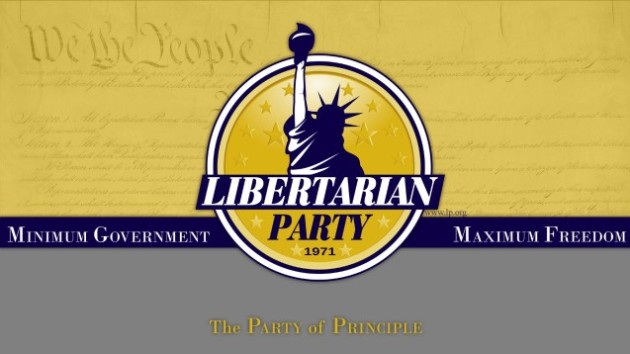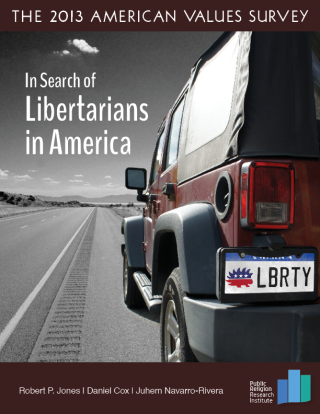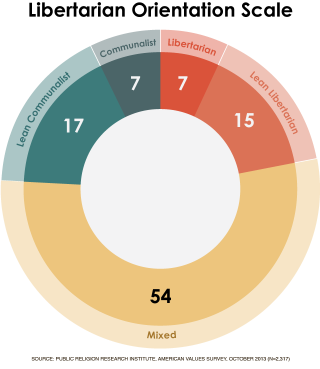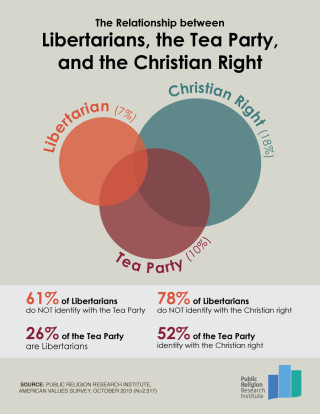Is a Libertarian Party in Florida’s future?
Debra Caso, a Florida resident and member of Freedom Advocates, in an email writes, “It is time to look at our political choices a little more closely. Principle over Party and issues we can agree on across the board. Are you better off today than you were 16 years ago? If you work for the government you probably are richer but your rights have been radically attacked by the R and D party. Candidates start at the local level and they go right up to Congress! Congress has failed America. RD Party is 2 sides of the same coin, we need a second party.”
Caso is energized because of the 2013 American Values Survey: In Search of Libertarians in America published by the Public Religion Research Institute on October 30th.
So is Alex Snitker from the 1787 Radio Network. In his column “There Are 2,595,586 libertarians In Florida” Snitker writes, “In Florida, there is only one way for a political party to reach major party status. That is [by] having 5% of registered voters be registered in your party. In the 2013 American Values Survey, “In the Search of Libertarians” a clear path was laid on how the Libertarian Party of Florida can achieve major party status in our state. There are 11,798,121 registered voters in Florida. If this poll is correct this means that there are 2,595,586 libertarian or libertarian leaning voters in Florida. For the Libertarian Party of Florida to reach major party status we need 589,907 to be registered Libertarians.”
The 2013 American Values Survey presents an interesting picture of the political landscape in the United States.
The Public Religion Research Institute (PRRI) states, “According to a newly developed Libertarian Orientation Scale, less than 1-in-10 (7%) Americans are consistent libertarians, and an additional 15% lean libertarian. At the other end of the spectrum, an equal number of Americans are consistent communalists (7%), and an additional 17% lean communalist. A majority (54%) of Americans have a mixed ideological profile, falling in between libertarian and communalist orientations.”
“Compared to the general population, libertarians are significantly more likely to be non-Hispanic white, male, and young. Nearly all libertarians are non-Hispanic whites (94%), more than two-thirds (68%) are men, and more than 6-in-10 (62%) are under the age of 50,” reports PRRI.
PRRI found, “Generally speaking, libertarians are more opposed than white evangelical Protestants, those affiliated with the Tea Party, and Republicans overall to government involvement across a range of economic policies, such as raising the minimum wage, Obamacare, and increasing environmental protections.”
The PRRI survey found that “Unlike economic questions, on which libertarians are generally aligned with other conservative constituencies, libertarians have a more distinct profile on social issues.”
- Nearly 6-in-10 (57%) libertarians oppose making it more difficult for a woman to get an abortion, a proportion identical to the general population. By contrast, strong majorities of Republicans overall (58%), Americans affiliated with the Tea Party (58%), and white evangelical Protestants (68%) favor making it more difficult for a woman to get an abortion.
- Seven-in-ten (70%) libertarians favor allowing doctors to prescribe lethal drugs to help terminally ill patients end their lives. Americans who identify with the Tea Party are closely divided on this question (49% favor, 51% oppose). By contrast, strong majorities of Republicans (58%) and white evangelical Protestants (70%) oppose this policy.
- More than 7-in-10 (71%) libertarians favor legalizing marijuana. By contrast, approximately 6-in-10 Republicans (61%) and Tea Party members (59%), and nearly 7-in-10 (69%) white evangelical Protestants, oppose legalizing marijuana.
- Unlike most other social issues, libertarians remain socially conservative on same-sex marriage. While a majority (59%) of libertarians oppose same-sex marriage, they are significantly less opposed than Republicans overall (67%) and than other conservative-leaning groups such as Tea Party members (73%) and white evangelical Protestants (80%).
A majority (53%) of libertarian voters say they always vote in primary elections, a rate comparable to white evangelical Protestant voters (48%) and Republican voters overall (50%) but significantly lower than the participation rate among Tea Party voters (62%).
As the 2014 election cycle begins calls for a third party tend to grow. Will there be a Libertarian Party in Florida? Time will tell.





